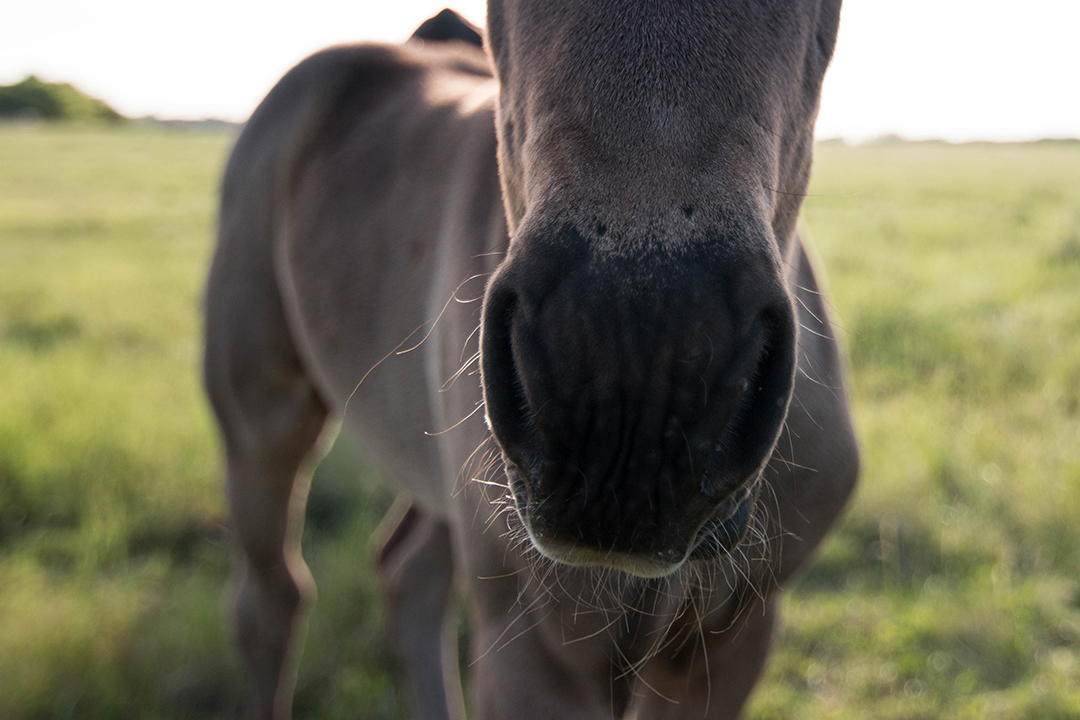
WCVM to cover post-mortem exam fees for suspected cases of foal disease
During the 2019 foal season, the Western College of Veterinary Medicine (WCVM) will cover the cost of conducting equine necropsy (post-mortem) examinations on aborted fetuses, stillbirths or euthanized foals that are suspected to be cases of warmblood fragile foal syndrome (WFFS).
By WCVM TodayCanadian horse owners and referring veterinarians can submit cases to Prairie Diagnostic Services (PDS), the provincial veterinary laboratory based in the veterinary college. The WCVM Veterinary Medical Centre will cover the fee associated with a post-mortem examination as a means of gathering additional information about the genetic disease.
In 2018, WCVM researchers developed an online survey to help gauge Canadian horse owners’ awareness of WFFS, an inherited genetic disorder that’s known to occur among warmblood and sport horse populations worldwide. While the condition has been identified in the past, recent cases of WFFS in early 2018 heightened concerns about the disease among warmblood horse breeders and owners.
The disease is characterized by abnormally thin, fragile skin and mucous membranes that causes extensive lesions throughout a foal’s body. Clinical signs include hyperextension of limb joints, floppy ears, accumulation of fluid in the fetus, and premature birth. Live newborn foals affected by WFFS must be euthanized since there is no cure or treatment available.
The genetic mutation, which is found in the PLOD1 (procollagen-lysine, 2-oxoglutarate 5-dioxygenase 1) gene, impairs normal function of an enzyme called lysyl hydroxylase 1 that plays a vital role in the biosynthesis of collagen (main structural protein found in skin). In humans, this type of mutation causes a similar defect called Ehler-Danlos syndrome type VI.
WFFS is an autosomal recessive defect, meaning that both males and females are equally affected. Two copies of the mutation are needed to cause the genetic disorder. Horses that carry one copy of the recessive mutation are normal but can transmit the mutation to half of their offspring. The incidence of carriers in warmblood horses is estimated to be between nine and 11 per cent. Based on results from the WCVM’s online survey, there have been no cases of WFFS reported in Western Canada yet.
A DNA test for WFFS is available; with testing, breeders can avoid the risk associated with breeding a WFFS carrier to another WFFS carrier. The Canadian Warmblood Horse Breeders Association (CWHBA) is offering optional DNA testing for WFFS (with a fee for service) to its members through Maxxam Analytics, a Canadian DNA testing laboratory.
For more information, please contact Dr. Julia Montgomery (306-966-7025 or julia.montgomery@usask.ca), Dr. Valentina Ragno (valentina.ragno@usask.ca) or the WCVM Veterinary Medical Centre’s Large Animal Clinic (306-966-7178).
